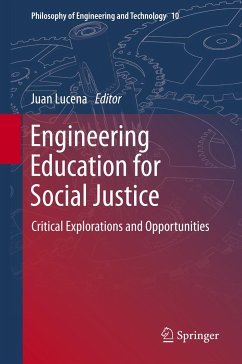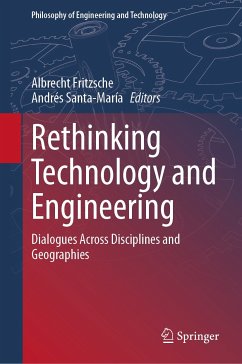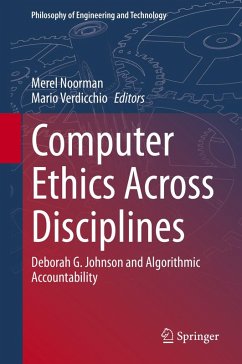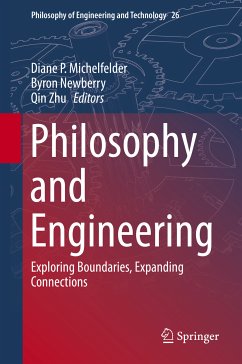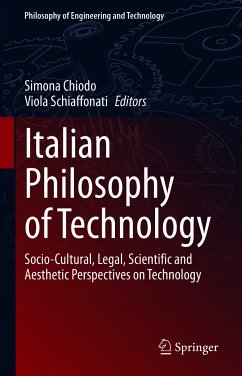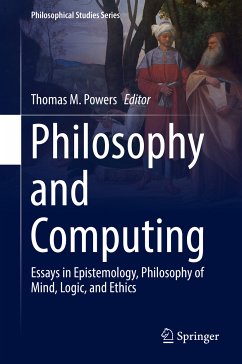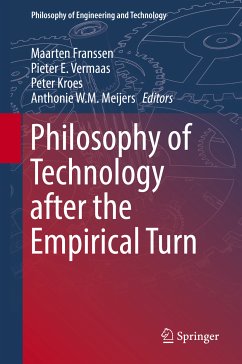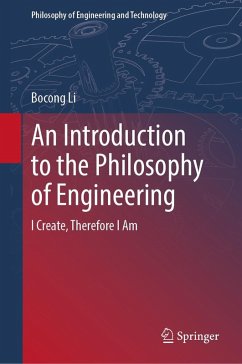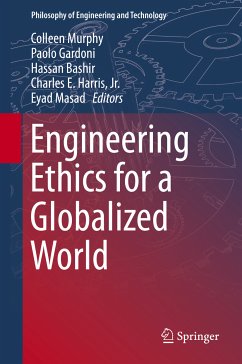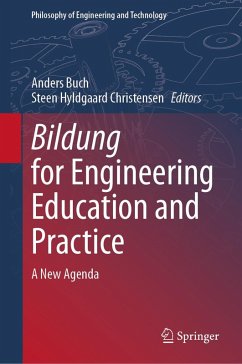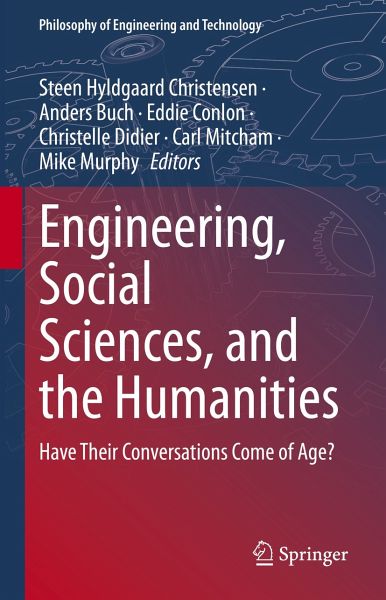
Engineering, Social Sciences, and the Humanities (eBook, PDF)
Have Their Conversations Come of Age?
Redaktion: Christensen, Steen Hyldgaard; Murphy, Mike; Mitcham, Carl; Didier, Christelle; Conlon, Eddie; Buch, Anders
Versandkostenfrei!
Sofort per Download lieferbar
104,95 €
inkl. MwSt.
Weitere Ausgaben:

PAYBACK Punkte
52 °P sammeln!
This book presents a critical examination of conversations between engineering, social sciences, and the humanities asking whether their conversations have come of age. These conversations are important because ultimately their outcome have real world consequences in engineering education and practice, and for the social and material world we inhabit. Taken together the 21 chapters provide scholarly-argued responses to the following questions. Why are these conversations important for engineering, for social sciences, and for the humanities?Are there key places in practice, in the curriculum, ...
This book presents a critical examination of conversations between engineering, social sciences, and the humanities asking whether their conversations have come of age. These conversations are important because ultimately their outcome have real world consequences in engineering education and practice, and for the social and material world we inhabit. Taken together the 21 chapters provide scholarly-argued responses to the following questions.
- Why are these conversations important for engineering, for social sciences, and for the humanities?
- Are there key places in practice, in the curriculum, and in institutions where these conversations can develop best?
- What are the barriers to successful conversations?
- What proposals can be made for deepening these conversations for the future?
- How would we know that the conversations have come of age, and who gets to decide?
The book appeals toscholarly audiences that come together through their work in engineering education and practice. The chapters of the book probes and access the meetings and conversations, and they explore new avenues for strengthening dialogues that transcend narrow disciplinary confines and divisions.
"The volume offers a rich collection of descriptive resources and theoretical tools that will be useful for researchers of engineering practices, and for those aiming to reshape the engineering lifeworld through new policies. The book depicts the current state of the art of the most visible SSH contributions to shaping engineering practices, as well as a map of research gaps and policy problems that still need to be explored."
- Dr. Ir. Lavinia Marin, TU Delft, Electrical Engineering and Philosophy
Dieser Download kann aus rechtlichen Gründen nur mit Rechnungsadresse in A, B, BG, CY, CZ, D, DK, EW, E, FIN, F, GR, HR, H, IRL, I, LT, L, LR, M, NL, PL, P, R, S, SLO, SK ausgeliefert werden.



